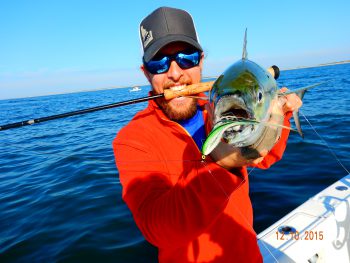
In this issue, we chat with North Carolina Coastal Federation member, Joey Hester, a former intern in our central office and current non-point source planning coordinator for the N.C. Division of Soil and Water Conservation.
Tell us a bit about yourself.
I’m from Rocky Mount and spent most of my childhood hunting and fishing, so the North Carolina countryside is like my giant back yard. I studied environmental science at the University of North Carolina at Chapel Hill, as well as ecologically sustainable development at Murdoch University in Australia. I currently live in Raleigh with my wife Kennan.
What is your favorite memory of the coast?
I remember climbing the Hatteras lighthouse with my sister when we were little (back before they moved it), annual family trips to Nags Head, and fishing in Masonboro Inlet with a childhood friend. I’ve had so many great experiences at the coast, it’s hard to pick just one.
Do you have a favorite place to visit at the coast?
Portsmouth Island is a clear favorite — there’s nothing there, it’s absolutely undeveloped, so it’s a good place to see what the coast looked like 200 years ago. I’ve been surf fishing there with my dad since I was little and we’ll be back out there again in October. It’s a good way to get away from the rest of the world. We mainly stay in the cabins at the south end. Even with the horse-sized mosquitos, I prefer that spot over pretty much anywhere I’ve ever been. I tell people all the time that you don’t find places like coastal North Carolina anywhere in the world.
When did you first become aware of the Coastal Federation?
I first learned about the Coastal Federation when I was looking for an internship for the summer of 2006, before my senior year at UNC. I worked with the habitat restoration team in the main office in Newport and learned everything I ever needed to know about oysters. It was an amazing summer, and I ended up staying on through the fall semester.
What coastal concern matters most to you & what would you like to see done about it?
Climate change and rising sea level. Now that we’ve armored our coast all the way to the shoreline there’s nowhere for the wetlands to go to migrate inland. I work with farmers who they say that they don’t know about what’s being said on the news, but they see water levels in their canals that weren’t there 20 years ago and won’t drop. These farmers have to deal with the salt water encroachment today, not in 20 years.
Any final thoughts?
North Carolina truly is a gem. There are few places like our coast in the whole country, and there are zero places like the Hatteras National Seashore in the whole world. This place is our home, it is special, and it deserves our utmost respect and adoration. There aren’t many people left who dedicate their entire lives to protecting this priceless coastline, and so we need to make sure those rare few are supported every step of the way.
